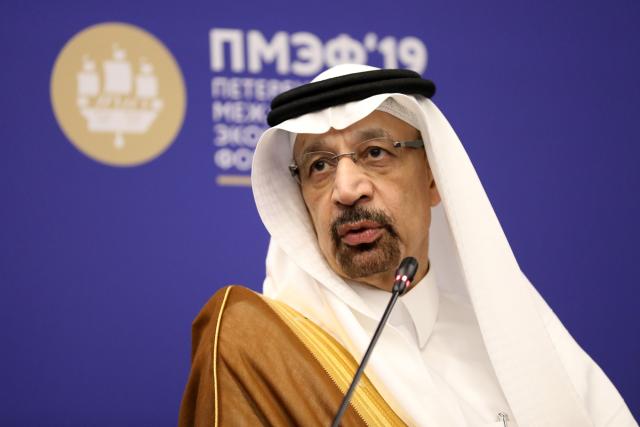Khaled Al-Falih, the Minister of Investment of Saudi Arabia, made an intriguing announcement on Wednesday, signaling a potentially significant development in the realm of Middle East diplomacy. Despite the kingdom's prior vocal criticism of Israeli military operations in Gaza, Al-Falih revealed that talks aimed at normalizing diplomatic ties with Israel would continue. However, he emphasized that such normalization would be "conditional on the path to a peaceful solution to the Palestinian question."
This statement from a high-ranking Saudi official is remarkable in the context of regional politics. It suggests a nuanced approach by Saudi Arabia, one that balances its historical stance on the Palestinian issue with the prospect of broader diplomatic engagement. Al-Falih went further by disclosing Saudi Arabia's plan to host three summits in the coming days, all focused on addressing the Israeli-Palestinian conflict.
Saudi Arabian police arrested an imam who called on all Arab countries to support the atrocities of Hamas and join the war against Israel.
— Israel War Room (@IsraelWarRoom) November 8, 2023
The first summit will bring together Arab countries, followed by a second gathering of African nations, and finally, a meeting involving other Muslim-majority countries. According to Al-Falih, the immediate objective of convening these summits under Saudi leadership is to foster a peaceful resolution to the longstanding conflict.
Traditionally, Saudi Arabia has been supportive of Fatah, the Palestinian political faction led by Mahmoud Abbas. However, it has refrained from endorsing extremist organizations within Palestinian politics, such as Hamas or Islamic Jihad, known for their radical ideologies and militant activities. This cautious approach is partly rooted in Saudi Arabia's commitment to countering radical Islamic elements, a stance that gained prominence after Saudi citizens were found to be involved in the 9/11 attacks.
Saudi Arabia views Hamas, particularly its methods that resemble those of ISIS, as incongruent with the values of Islam and detrimental to regional peace and stability. Notably, in 2014, Saudi Arabia declared the Muslim Brotherhood, the parent organization from which Hamas emerged, as a terrorist entity.
Furthermore, the Saudi government's pursuit of normalized relations with Israel comes amid rising tensions in the region. The Saudi military recently heightened its readiness following confrontations with Iran-backed Houthi rebels in neighboring Yemen. These rebels attempted to launch a missile towards Israel from Yemen, an action that drew concern and prompted a response from Saudi forces.
Sources indicate that four Saudi soldiers lost their lives during clashes with Houthi forces in the southwestern province of Jazan, bordering Yemen. It was revealed, albeit anonymously due to the sensitive nature of the information, that Saudi defense forces intercepted a missile fired towards Israel by the Houthis in recent weeks. This underscores the regional complexity that Saudi Arabia is navigating, where it faces threats from multiple directions.
🚨🇮🇱🇾🇪 Yemeni leader Ansarullah Muhammad al-Buhaiti accused the UAE and Saudi Arabia of collaborating with Israel against the Palestinians.
— Jackson Hinkle 🇺🇸 (@jacksonhinklle) November 3, 2023
“We asked Saudi Arabia to lift the blockade and allow our troops into Palestine, but they refused.” pic.twitter.com/IN0OpeMwV1
Implicit in Al-Falih's statement is the notion that, while Saudi Arabia may not publicly acknowledge it, there is a strong interest in weakening or eliminating Hamas. The fact that a relatively small organization like Hamas could influence Saudi Arabia's stance and temporarily suspend normalization efforts has not gone unnoticed.
It's worth noting that as of October 31, the White House's spokesman for national security affairs expressed that Saudi Arabia remains interested in signing a normalization agreement with Israel once the ongoing conflict subsides. This signals Saudi Arabia's commitment to its diplomatic plan despite setbacks, and it appears determined to pursue this path in the future.


